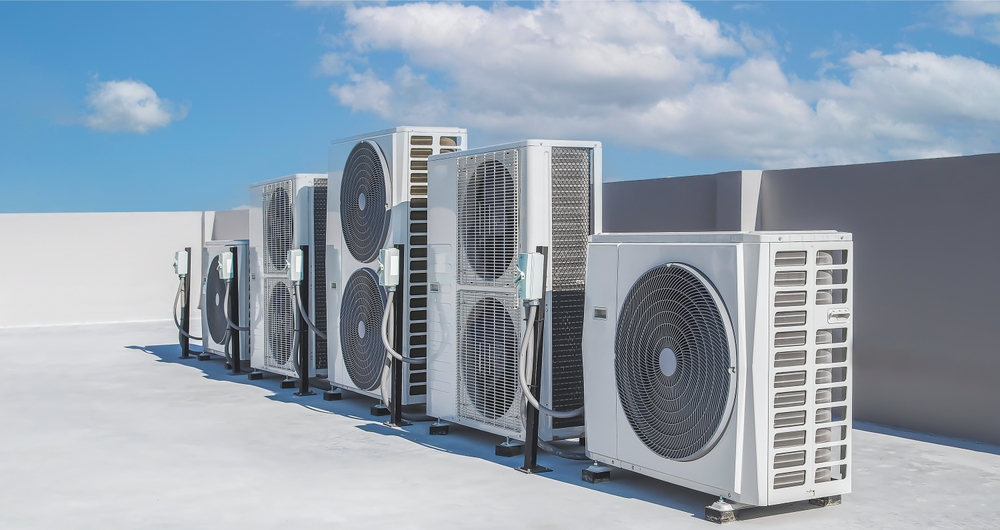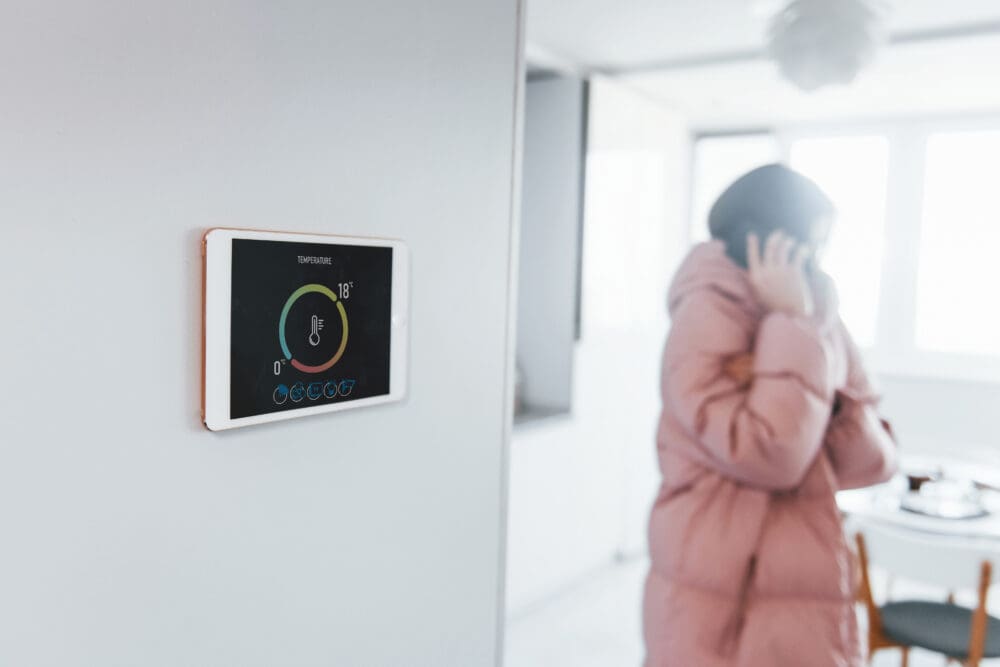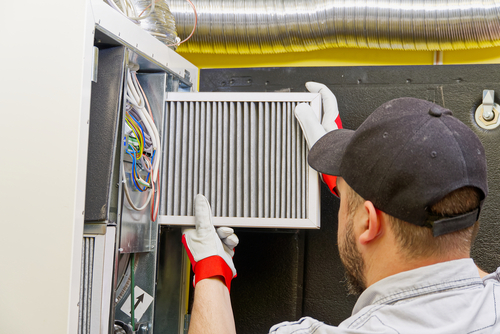
If your air conditioner suddenly stops cooling and you discover a block of ice forming on the unit, don’t panic. A frozen AC unit is a common issue for homeowners in Fort Myers, and thankfully, it’s often easy to fix.
With the right steps and a little patience, you may be able to solve the issue yourself or at least prevent further damage before calling in a professional technician.
At Gulf Shore Cooling, LLC, we’ve helped countless homeowners and businesses get their cooling systems back on track. We’re here to walk you through the causes, what to do when your AC freezes, and when to reach out to our experienced team for expert help across Fort Myers and surrounding areas.
Why Does an Air Conditioner Freeze Up?
An air conditioner freezes when there’s an imbalance between airflow, refrigerant levels, or temperature conditions inside the system. When something disrupts the cooling cycle, ice can form on the evaporator coils, preventing your system from running efficiently.
Here are the most common causes of a frozen air conditioner:
Restricted Airflow From Dirty Filters or Blocked Vents
One of the most frequent culprits behind a frozen AC unit is poor airflow. When air can’t move freely across the evaporator coils, the coils don’t absorb enough heat. As a result, condensation freezes on the coil surface, eventually creating a layer of ice that chokes your system.
A lack of airflow usually stems from:
- Dirty or clogged air filters
- Blocked supply or return vents
- Furniture, curtains, or clutter obstructing airflow
Low Refrigerant Levels or Leaks
Refrigerant absorbs heat from the air inside your home. If refrigerant levels are low due to a leak or other issues, the pressure in the coils drops, causing the evaporator coils to become too cold. This can lead to rapid ice buildup.
Since refrigerant handling requires EPA-certified technicians, it’s best to call a professional HVAC company if you suspect this issue.
Thermostat or Electrical Malfunctions
Sometimes your AC unit freezes due to issues with your thermostat or internal electrical components. If the thermostat is misreading the room temperature, it may keep the system running too long, causing the coils to drop below freezing.
Similarly, malfunctioning relays or sensors can prevent the system from cycling off when needed.
Dirty Evaporator Coils
Even if your air filter is clean, your evaporator coils can still get coated with dust, mold, or debris over time. This dirt creates an insulating layer that disrupts heat transfer, causing condensation to freeze on the coils.
Outdoor Temperatures Too Low for Cooling
Running your AC during cool mornings or nights can lead to freezing. If the outdoor temperature drops below 60°F and your system continues cooling, the coils may become too cold to operate safely.
In colder seasons, consider using your thermostat’s “fan only” or dehumidify mode when it’s mild outside to avoid accidental freezing.

Immediate Steps to Take When Your AC Freezes Up
If you’re not sure what to do if the AC freezes, keep reading. Acting quickly can help prevent long-term damage and get your system back to normal. Here’s what to do when your AC unit freezes up:
Turn Off the AC at the Thermostat
The first thing you should do is shut off your air conditioner. Running an air conditioner that’s frozen can make the problem worse and lead to permanent damage.
Set your thermostat to “Off.” This stops the cooling cycle and prevents further ice from forming.
Switch Fan to “On” Mode
Once the system is off, change your thermostat fan setting to “On.” This forces the fan to blow air continuously, which helps thaw the frozen coils faster by circulating warmer indoor air over them.
Leave the fan running for several hours to promote airflow and allow the ice to melt. This safely defrosts your AC unit without damaging delicate components.
Check and Replace Your Air Filter
A clogged air filter is one of the most common causes of a frozen AC unit, so it’s smart to check it at the first signs of ice on the unit coils. Hold the filter up to a light, and if you can’t see light through it, it’s time to replace it.
Regularly changing your air filter (every 1–3 months) can help avoid future freezing and extend the life of your AC unit.
Inspect for Blocked Vents or Registers
Blocked airflow doesn’t just happen at the filter. Take a quick walk through your home and check that:
- All supply and return vents are open
- Vents aren’t blocked by furniture, rugs, or curtains
- No visible dust buildup is restricting airflow
Clearing these obstructions ensures your system can breathe properly, reducing the risk of freezing and improving overall efficiency.
Allow the Coils to Fully Defrost
Patience is key here. Depending on how much ice has built up, it can take anywhere from 1 to 24 hours for the coils to fully thaw. Do not try to chip away at the ice manually, as this can damage the coils.
After the coils are thawed and airflow is restored, you can try restarting the system. Only try this if you’re sure the cause has been addressed.
When to Call a Professional HVAC Technician
While some frozen AC problems are easy to fix, others require a trained eye and specialized tools. If your system continues freezing up after you’ve taken the steps above, it may be time to call for a professional AC repair.
Call a professional HVAC technician if:
- Ice returns shortly after thawing
- The system blows warm air, or won’t cool at all
- You hear bubbling, hissing, or buzzing sounds
- Your unit trips the breaker or stops cycling properly
- There’s visible water leakage around the indoor unit
Licensed professionals should always handle refrigerant leaks, damaged thermostats, and electrical issues. At Gulf Shore Cooling, our experienced team is trained to diagnose and fix freezing issues fast.
We offer emergency AC repair services throughout Fort Myers and nearby areas, so you’re never stuck sweating it out alone.

How to Prevent Your AC From Freezing Again
After you’ve resolved the issue, it’s time to make sure it doesn’t happen again. A few proactive steps can dramatically reduce your risk of a frozen air conditioner in the future and help your system run more efficiently.
Schedule Seasonal AC Tune-Ups
Just like a car, your AC needs regular maintenance to keep running smoothly. A seasonal tune-up includes inspecting the refrigerant charge, cleaning coils, checking electrical components, and testing airflow, all of which help prevent freezing.
Professional maintenance not only prevents freezing but can also reduce energy costs and extend your unit’s lifespan.
Keep Air Filters Clean Year-Round
Clogged filters are the most common reason for airflow restriction and system freezing. Set a reminder to check your air filter every month, especially during peak summer cooling months.
Choose a filter with a MERV rating appropriate for your system, and follow the replacement schedule. This small habit can make a big difference in your system’s overall health.
Seal Duct Leaks and Insulate Properly
Leaky or uninsulated ductwork can lower your system’s performance and lead to temperature imbalances, which may cause freezing in certain zones.
If your ducts run through uninsulated spaces like attics or garages, consider adding additional insulation to prevent cold spots that lead to coil freezing.
Use a Smart Thermostat for Better Control
Smart thermostats keep your home cool and help maintain system health. Features like geofencing, humidity control, and cycle optimization help prevent your unit from overworking when it doesn’t need to.
Look for models that:
- Integrate with your HVAC system
- Provide freeze alerts or maintenance reminders
- Allow remote monitoring via smartphone
Using a smart thermostat is one of the simplest ways to reduce strain on your AC and avoid freeze-related breakdowns.
Why Choose Gulf Shore Cooling for AC Repairs in Fort Myers?
If your air conditioner is frozen, you need a team that responds quickly and gets the job done right the first time. At Gulf Shore Cooling, we’re proud to be a local HVAC company that offers honest, reliable service with every visit.
When you work with our team, you benefit from:
- Certified HVAC technicians with real experience
- Emergency repair availability
- Transparent, upfront pricing and no surprises
- A focus on long-term comfort, not quick fixes
- Outstanding customer service backed by real reviews
Whether you need a fast repair, a refrigerant refill, or a new system, we know what to do when your AC freezes. We offer a full range of high-quality AC services in Fort Myers and surrounding areas.
Call Now to Schedule AC Repair or Inspection
Don’t wait for your frozen air conditioner to turn into a costly problem. The sooner you act, the easier it is to fix.
Call Gulf Shore Cooling today or visit our website to schedule your AC inspection or repair. We proudly serve Fort Myers, Cape Coral, Bonita Springs, Estero, and surrounding areas.
Frozen Air Conditioner FAQ
How long does it take for a frozen AC to thaw?
It depends on how thick the ice buildup is. With the system off and the fan set to “On,” most units thaw in 2–8 hours. Heavier ice buildup can take up to 24 hours. Never chip at the ice, as this can damage your coils.
Can I run my AC if it’s partially frozen?
No. Running a frozen or partially frozen AC unit puts stress on the compressor and can cause expensive damage. Turn it off immediately and read the steps on what to do if your AC freezes, which are outlined above.
Is a frozen AC dangerous?
While it’s not typically hazardous to your health, a frozen AC can cause water leaks, system strain, or electrical issues. It’s best to turn the system off and schedule professional service if the issue keeps coming back.
How do I know if my AC coils are frozen?
Common signs your air conditioner is frozen include:
- Little to no airflow from vents
- Visible ice on indoor or outdoor components
- Water leaking near the air handler
- Warm air coming from your vents
Does low refrigerant always mean a leak?
Usually, yes. Refrigerants don’t get “used up” like gas for your car. If it’s low, there’s likely a leak in the system. This needs to be repaired and recharged by a licensed HVAC technician to restore cooling performance and prevent further freezing.



